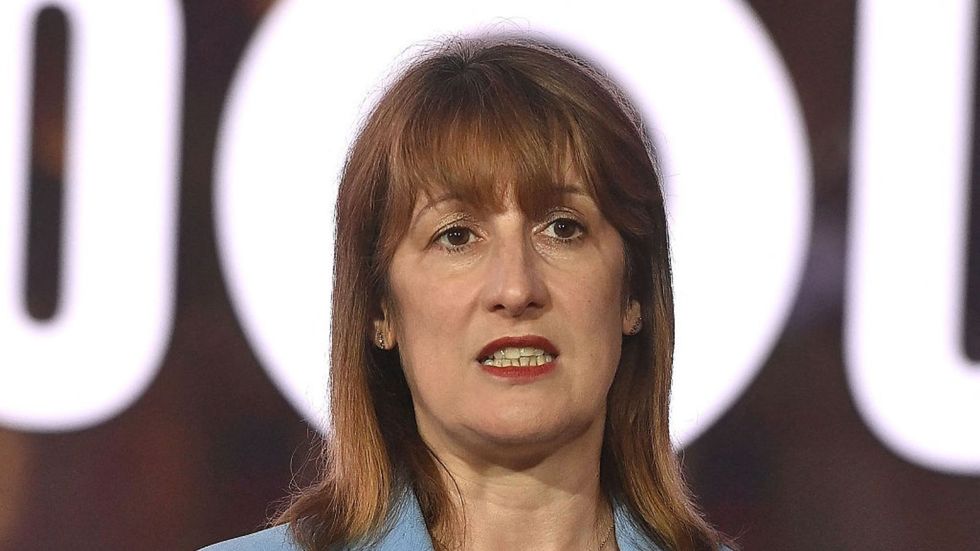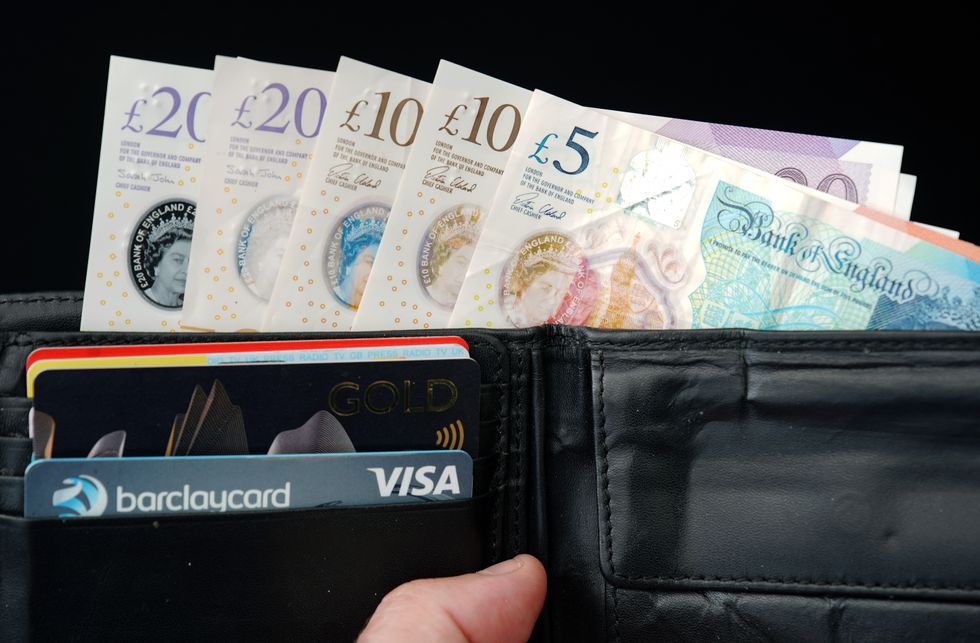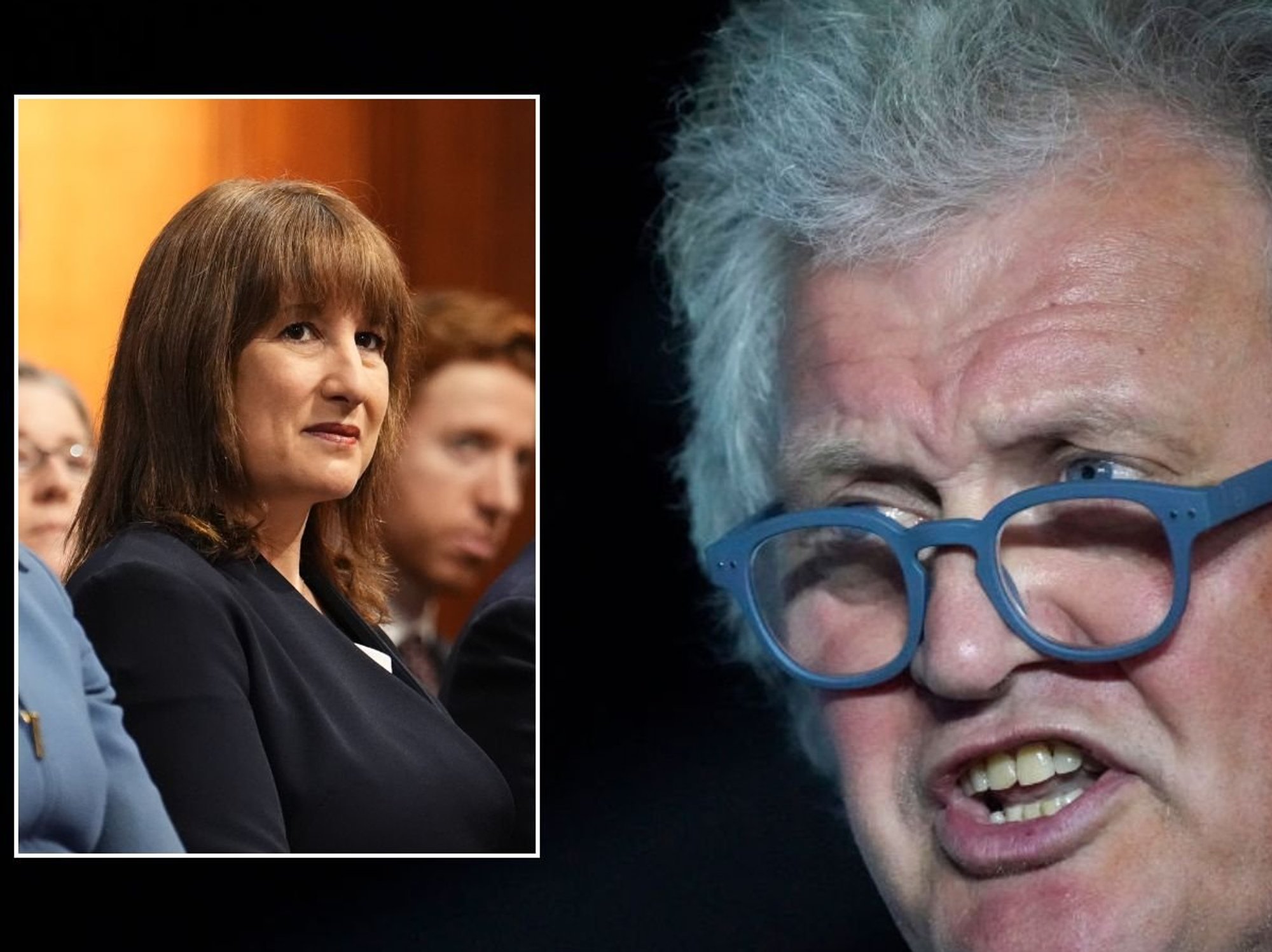Pension warning: Over 65s hit with shock £2.5billion tax raid on savings as Rachel Reeves cashes in on frozen thresholds

This is a 215 per cent jump from what they paid in 2022-23
Don't Miss
Most Read
Latest
Pensioners are being warned they could be hit with a huge tax shock on their savings in the years ahead.
Fresh analysis shows older savers are facing a dramatic rise in the amount of interest lost to the taxman, with billions at stake.
Pensioners will hand over £2.5billion in savings tax this financial year, a staggering 215 per cent increase compared to 2022-23.
Figures from HMRC, obtained through a Freedom of Information request by Paragon Bank, highlight just how hard frozen tax thresholds are hitting older savers. For those aged over 65 who have worked for years to build up a nest egg, the numbers make for grim reading.
The squeeze stems from tax bands being frozen since 2022, while the personal savings allowance has remained unchanged for nine years. As a result, growing numbers of pensioners are being dragged into paying tax on their savings interest.
Chancellor Rachel Reeves is meanwhile weighing up tax hikes of up to £50billion this autumn to restore her £9.9billion fiscal headroom. That has fuelled fears she could extend the freeze on income tax thresholds – a stealth tax often dubbed fiscal drag – which is due to end in 2028.
Rising wages and inflation mean that, even without official rate rises, millions more people risk slipping into higher bands and seeing their tax bills increase.
The sharpest hit is on additional-rate taxpayers aged over 65. Their contributions are set to more than quadruple, soaring from £270million in 2022-23 to £1.1billion this year – a 307 per cent rise.
Once income passes £125,140, the personal savings allowance is lost entirely, meaning every penny of interest is taxed at 45 per cent.
Higher-rate pensioners will also face steep increases, with their bills climbing 169 per cent to £885million. Those on the basic rate are expected to pay £518million – a 163 per cent jump.
Altogether, over-65s will shoulder 41 per cent of all savings tax this year, up from 39 per cent two years ago.
LATEST DEVELOPMENTS:

There is fears the Chancellor could extend the freeze on income tax threshold
|GETTY
Basic-rate taxpayers aged over 65 aren't escaping the pain either. They'll be handing over £518million to the taxman this year - a 163 per centincrease from the £197million they paid in 2022-23.
Andrew Wright, Head of Savings at Paragon Bank, commented: "We’re witnessing a significant and rapid escalation in the tax burden on savers nearing or enjoying retirement. This could have a profound impact on their long-term financial wellbeing.
"Many mature savers are facing unprecedented tax charges on the interest earned from their savings, which can have a substantial impact on their long-term financial wellbeing."
It's not just pensioners feeling the squeeze. Younger savers under 65 are also getting clobbered, with their tax receipts expected to jump 186 per cent from £1.24billion to nearly £3.6 billion over the same period.

Frozen tax thresholds mean more savers are being dragged into paying tax on their interest
|GETTY
Frozen tax thresholds mean more savers are being dragged into paying tax on their interest. Basic-rate taxpayers can earn up to £1,000 tax-free, higher-rate taxpayers just £500, while additional-rate taxpayers get nothing.
With savings rates at around four per cent, that means basic-rate taxpayers with over £25,000 saved and higher-rate taxpayers with more than £12,500 are now paying tax.
The allowances have not changed in nine years, and with tax bands also frozen since 2022, rising wages and interest rates mean more retirees are being caught out.
If the Chancellor chooses to extend the current freeze on income tax thresholds in the autumn Budget, the impact on households could be severe. Analysis from wealth manager Rathbones shows that those earning over £100,000 would pay an extra £7,000 in income tax if the freeze is maintained.
Such a move would also push 1.4 million more people into the highest rate bracket, which applies to income above £125,140 a year.

Experts recommend moving money into ISAs, where interest is completely sheltered from tax
| PAHowever, the good news is there's a way to protect your savings. Mr Wright recommends moving money into ISAs, where interest is completely sheltered from tax.
He said: "One effective way to mitigate some of this increased tax burden is by transferring funds into an ISA, where savings interest is sheltered from tax.
"ISAs remain an accessible and flexible option, empowering savers to protect more of their hard-earned money and make the most out of their nest eggs as they plan for, or live through, retirement."
Britons can save up to £20,000 a year into ISAs, keeping their interest tax-free. Options include easy-access accounts, fixed-rate deals, and flexible ISAs that allow withdrawals and replacements within the same tax year. Premium Bonds are another tax-free option, where any winnings are yours to keep while your original stake remains safe.More From GB News











